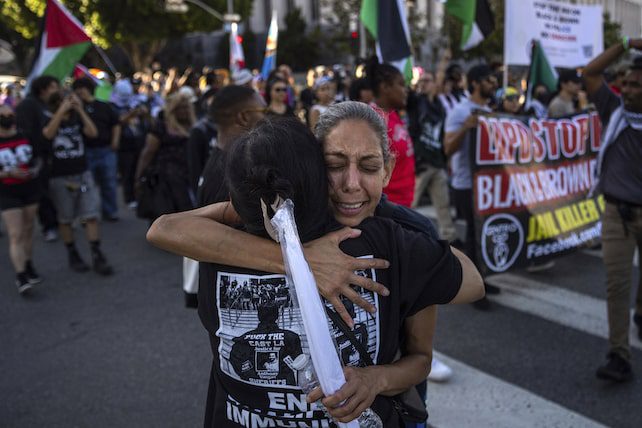Well before 2020, religious groups had taken steps toward reconciling among races and protesting racism. The Southern Baptist Convention adopted a landmark racial reconciliation resolution on its 150th anniversary in 1995, and the National Council of Churches held the A.C.T. to End Racism Rally, seeking to “awaken, confront and transform” on Washington’s National Mall in 2018, on the 50th anniversary of the assassination of the Rev. Martin Luther King Jr.
Religious leaders now plan to take part in events marking the fifth anniversary of Floyd’s death on May 25, including the Rev. Al Sharpton at a private memorial service at Floyd’s gravesite; vigils in Washington and Springfield, Massachusetts, with moments of silence for nine minutes and 46 seconds; and a “George Floyd Angel-versary event” at an Evangelical Lutheran Church in America-affiliated congregation in Minneapolis.
Moore, the AME Zion bishop who spoke at the 2018 rally as the NCC’s chair, said the regression now seen after advancements in race relations and calls for improvements for Black Americans is not new. It also happened, he noted, when Jim Crow laws followed the post-slavery Reconstruction period, and when Donald Trump was elected president after Barack Obama was voted in as the first Black president.
“There’s going to come progress out of all of this anti-DEI and -CRT, all of this resentment that has been infecting this country,” he said. “We’re going to resist, persist and we’re going to advance and come out in a better place. So we are honest about the conditions that we’re facing, but we are not hopeless about what we’re facing.”
RELATED: Three years after George Floyd’s death, faith groups quietly advance racial healing
This article originally appeared here.

